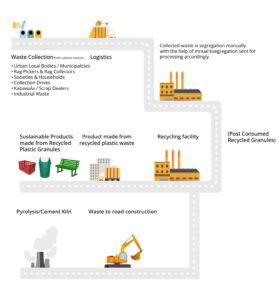
Dubai, known for its luxurious lifestyle and booming real estate market, has become a top destination for property investors worldwide. Whether you’re a first-time buyer or an experienced investor, navigating the dubai property buying guide market requires a solid understanding of legal procedures, market trends, and strategic planning. This detailed guide walks you through everything you need to know before buying property in Dubai.
1. Understand the Property Types in Dubai
Dubai offers a variety of properties, including:
-
Freehold Properties: Foreigners can purchase these and have full ownership rights. Popular areas include Dubai Marina, Downtown Dubai, and Palm Jumeirah.
-
Leasehold Properties: These are leased for up to 99 years and cannot be owned outright.
-
Off-plan Properties: These are under construction or in the planning stage, offered at a lower price.
Choosing the right type depends on your budget, investment goal, and risk tolerance.
2. Know Your Budget and Financing Options
Before making any investment, set a realistic budget. Costs include:
-
Down payment: Usually 20–25% for expats.
-
Registration fees: 4% of the property value.
-
Agency fees: Typically 2% of the property price.
-
Mortgage arrangement fees: 1% of the loan amount.
Banks in Dubai offer attractive mortgage options to expats, but approval depends on your credit score, income, and employment status. It’s advisable to get a pre-approval letter from a bank before starting your property search.
3. Research the Developer and Project
It’s crucial to choose a reliable developer. Check their track record, completed projects, customer reviews, and project delivery timeline. Some reputed developers in Dubai include:
-
Emaar Properties
-
Damac Properties
-
Nakheel
-
Sobha Realty
Also, ensure the project is registered with the Dubai Land Department (DLD) and Real Estate Regulatory Authority (RERA).
4. Choose the Right Location
Dubai’s real estate is highly location-dependent. Here are some popular choices:
-
Downtown Dubai: Ideal for luxury seekers and short-term rentals.
-
Dubai Marina: Popular among expats, with high rental yields.
-
Jumeirah Village Circle (JVC): Affordable housing with good future growth.
-
Business Bay: Commercial-residential hybrid area.
Think long-term and consider factors like connectivity, infrastructure, schools, and amenities.
5. Legal Steps and Documentation
To purchase a property in Dubai, here’s a typical legal process:
-
Sign a Memorandum of Understanding (MoU): This outlines terms between buyer and seller.
-
Pay a deposit: Usually 10% of the property price.
-
Obtain a No Objection Certificate (NOC): From the developer.
-
Transfer ownership at DLD: Pay required fees and receive the Title Deed.
All transactions should be done through licensed real estate agents and lawyers to avoid fraud.
6. Understand the Risks and Returns
While Dubai offers high rental yields (6–8% on average), property values can fluctuate. Risks include:
-
Market volatility
-
Regulatory changes
-
Construction delays (in off-plan projects)
It’s essential to assess whether you’re buying for personal use, rental income, or capital appreciation. A long-term strategy is recommended for better returns.
7. Taxation and Ongoing Costs
Dubai is known for its tax-free property environment—there is no annual property tax or capital gains tax. However, you should consider ongoing costs like:
-
Service charges and maintenance fees
-
Utility bills
-
Home insurance
-
Property management fees (if renting)
These costs vary by property type and location, so always factor them into your calculations.
8. Residency Visa Through Property Investment
Investing in Dubai property may qualify you for a residency visa, depending on the value:
-
AED 750,000+ = 2-year renewable visa (under certain conditions)
-
AED 2 million+ = 10-year Golden Visa (subject to meeting other criteria)
This is an added benefit for expats seeking a long-term stay in Dubai.
9. Work with Trusted Professionals
To simplify your property buying experience, work with:
-
RERA-registered real estate agents
-
Legal consultants
-
Mortgage advisors
-
Property management companies
They can help you with paperwork, due diligence, and negotiations.
Conclusion
Buying property in Dubai is a rewarding but complex process that requires informed decision-making. With the right approach, clear legal understanding, and a trustworthy team, your investment in the Dubai real estate market can bring you long-term value and stability. Whether it’s your dream home or a lucrative rental property, this vibrant city offers endless possibilities for smart investors.

